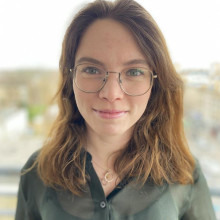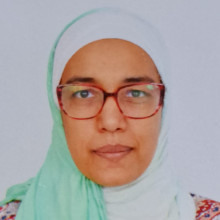
Persons with Disabilities Roundtable
Summary
By 2050, over two billion persons with disabilities (PwD) and older persons will live in urban communities. They will require inclusive and accessible infrastructure and services to live safe, independent and dignified lives, while participating in all aspects of society. Therefore, global aspirations to ‘leave no one behind’ and achieve the Sustainable Development Goals (SDGs) must be translated into local actions to ensure that the obligations set down by the Convention on the Rights of Persons with Disabilities (CRPD) are met. This includes taking immediate action to address persistent discrimination and accessibility barriers faced by persons with disabilities, while ensuring urgent action is taken to also address widening and deepening inequalities in the face of urbanization.
The PwD roundtable “Advancing disability-inclusive urban development through local actions” will be a key meeting point for participants to explore disability-inclusive development through local actions and promote accessibility for persons with disabilities to live independently with autonomy, choice and control. The roundtable will also serve as a space to discuss and share experiences, strategies, tools and actions for fostering localization of global agendas to leave no one and no place behind. It will gather diverse stakeholders, including national and local governments, organizations of persons with disabilities, academics, NGOs, United Nations agencies and international financial institutions, to work towards ensuring multi-stakeholder approaches to multilevel actions.
Linkage with WUF12 theme
The overarching theme of WUF 12; “It All Starts at Home: Local Actions for Sustainable Cities and Communities,” embodies the criticality of localized strategies and actions to address the challenges of urbanization and ensure a better quality of life for all, including persons with disabilities. Progressing on SDG localization and the New Urban Agenda entails placing local communities at the centre of sustainable urban development, while anchoring actions on the principles of partnership, inclusion and impact.
There can be no sustainable urban development without the meaningful inclusion of persons with disabilities as key stakeholders in shaping the cities and human settlements of today and tomorrow. Moreover, inclusive environments are produced not just by regulations and standards for accessibility, but also through robust design processes that include genuine participation of persons with disabilities. Hence, this roundtable holds relevance to all WUF12 dialogue themes. Specifically, the roundtable will discuss actions, innovations, approaches and practices to:
- localize global agendas in line with the CRPD,
- improve accessibility of housing and public spaces,
- advance disability-inclusive resilience, climate action and finance,
- facilitate the adoption of inclusive smart city technologies,
- create meaningful and multi-stakeholder partnerships,
- and promote engagement mechanisms to inform local action in promoting inclusion and barrier removal.
Building on the legacy of the Katowice Declared Actions and the CRPD, accessibility serve as a unifying thread for the session, recognising its role as a transformative action area to address the challenges of urbanization, including urban crises.
Objectives
- Encourage the integration of disability-inclusive practices in urban planning and policy-making to ensure accessibility and equity for persons with disabilities.
- Strengthen partnerships among governments, organizations and communities to advance shared strategies for inclusive urban development.
- Increase understanding and implementation of local actions that align with global disability rights frameworks, to foster environments where persons with disabilities can thrive.
Expected outcomes and impact
The PwD Roundtable aims to enhance awareness and local action on mainstreaming disability inclusion across the New Urban Agenda’s five main pillars of implementation: national urban policies, urban legislation and regulations, urban planning and design, local economy and municipal finance, and local implementation. It will also provide a platform for diverse participants to:
- Share and record practices and innovations - including successes for replication and scaling across contexts - to improve policies, planning and design for persons with disabilities;
- Launch a multi-stakeholder working group on disability inclusion linked to the Safety Human Rights and Social Inclusion’s (SHRSI’s) Community of Practice;
- Collate commitments to support the development of UN-Habitat’s Disability Inclusion Policy & Action Plan, including towards local actions;
- Strengthen partnerships to support the development of a legacy project on accessibility and localization;
- Develop key messages that will be integrated in the WUF 12 outcome declaration.
Guiding questions
Dialogue 1:
- What are some examples of good practices in disability inclusive local action?
- What challenges limit the achievement of disability inclusive local action?
- What can diverse stakeholders do to strengthen the effective mainstreaming of disability inclusion in urban planning and policies?
Dialogue 2:
- What is the role of multistakeholder collaboration in the development of accessible cities?
- How can organizations representing persons with disabilities contribute to the development and management of accessible cities?
- What opportunities are available to finance disability inclusive solutions in cities? What do we need to do to leverage resources?

 Streaming on UN WEB TV
Streaming on UN WEB TV
